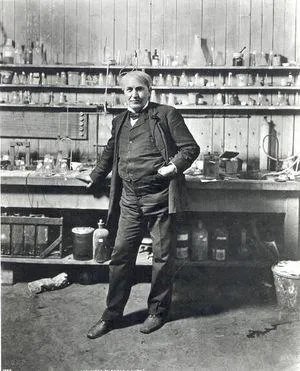
Why Should I Visit One More Website?
I wouldn't. Unless you are keenly focused on Film, Writing, Creativity, Technology. That's me in a nutshell working on the "Taken" series and other Hollywood films, webseries, and more. I always explore topics and I'm Creative. I'm a Creative Explorer. But what matters most is my own Self-Development because that's how I will get to my Goals. I'm not a Guru and maybe a bit of a Guide or Teacher. I'm an Artist going down a path and sharing what I learn. Take what you like and build who you want to become. I also do Martial Arts which works with Action Films and TV. Learn. Create. Explore. Repeat and Grow, living in the Present. I work in Film. I live in Self-Development. I thrive in Imagination. Join me.
Take Action Today!
Scholar Warrior Way Articles
"Learn a little every day. That 1% improvement each day is over 3600% in a single year. That is the Scholar Warrior Way for Authentic Self-Improvement." Michael Mandaville

Lorem ipsum dolor sit amet, consectetur adipisicing elit. Autem dolore, alias, numquam enim ab voluptate id quam harum ducimus cupiditate similique quisquam et deserunt, recusandae.

The Power of Illogical Questions
The Power of Illogical Questions
Logic is a double-edged sword. It has taken us from cultivating crops to automating industries, but if wielded too rigidly, it can box us in, tethering us to incremental progress instead of bold leaps forward. To innovate, we must sometimes reject logic. We need to ask illogical questions—not to dismantle rationality as a whole but to transcend its constraints.
History is lined with individuals who dared to ask the outlandish, entertain the bizarre, and imagine the impossible. These were not people shackled by the logic of their times; they were driven by a “what if,” a spark of thought that many would have dismissed as absurd. Call it creative thinking, non-linear thinking, or simply the confidence to explore the improbable.
What if.
Illogical questions create pathways to progress. Without them, society stagnates. With them, we reinvent ourselves.
When Illogical Thinking Changed the World
Take a moment to think about the groundbreaking ideas that have shaped human civilization. Do you think writing emerged because someone followed the logical flow of existing ideas? No. Writing was an audacious leap. Who thought it made sense to etch symbols on clay tablets to preserve thoughts? It was only illogical until it brought structure to communication, history, and culture. Then it became civilization's backbone. Recently, new evidence was discovered in Greece near Santorini about the use of writing, pushing back its start date by another 300-700 years.
How about the rudder on ships? For centuries, vessels were dependent on oars and paddles, clunky and unreliable for navigating vast oceans. Someone asked a seemingly nonsensical question, “What if a fixed appendage at the back could steer an entire ship?” Illogical? To many, likely yes. Revolutionary? Absolutely.
Or consider the Industrial Revolution. The steam engine is a product of illogical ambition. Harnessing water vapor to power machines wasn’t the obvious “next step.” It wasn’t logical to believe that an idea so rudimentary could transform textile mills, transportation, and global economies. Yet here we are.
Gunpowder, radio, television, the internet, artificial intelligence. All of these pivotal breakthroughs required humans to pause and think beyond the logical trajectory of their circumstances. The innovators behind these shifts were not bound by convention. They were, quite frankly, unreasonable.
The Art of Unrealistic Thinking
Ask yourself, are you operating within the bounds of logic or stretching into the unknown? Illogical thinking doesn’t mean chaos. It isn’t random or senseless. It’s asking questions that logic would dismiss or fear to address.
Consider the quote, “If you want your dream life, then start asking non-linear, illogical questions.” This principle stands at the core of creativity and innovation. Illogical thinking beckons us into a state of possibility, where our goals are unshaped by the limitations of present circumstances.
How do you develop this capacity for unrealistic thinking? Here are three strategies:
1. Challenge the Framework
Recognize when you’re confined by a logical framework. Start by questioning assumptions. Why has an idea worked for so long? Who determined the “rules” we follow today? Great thinkers challenge frameworks instead of blindly working within them.
Take Steve Jobs. At the time, the computer was a tool for professionals and corporations. It was never intended for personal use. Jobs asked, “Why can’t computers live in everyone’s home, designed as beautifully as furniture?” Illogical—but it redefined the trajectory of modern technology.
2. Practice Daily Imagination
We romanticize creativity as a flash of inspiration, but it’s often the result of deliberate effort. Allocate time each day to sit with unstructured thoughts. Start your mornings writing down irrational ideas and questions. They don’t have to make sense; they just have to exist. Writing creates a bridge from unmanifested ideas to tangible reality, coaxing concepts into clearer shapes over time.
3. Be Delusional Enough to Believe
At the heart of bold creativity lies a willingness to believe in the impossible. Delusion is often an artist’s, entrepreneur’s, or innovator’s framework for survival. Thomas Edison made thousands of failed attempts before inventing the electric light bulb. Imagine the persistence it took to continue testing filaments while facing repeated failure. Believing something can work after it hasn’t, thousands of times, is irrational, illogical even. Yet Edison pressed forward, fueled by his “delusion.”
The Illogical Questions That Created Pathways for Change
History turns on the hinge of breakthroughs born from illogical questions. Society renews itself when people dare to think unrealistically. Consider these pivotal leaps:
The Written Word gave us history and preserved ideas for future generations.
The Industrial Revolution automated production, transforming labor and economy.
Gunpowder reshaped warfare and power structures globally.
The Rudder helped humans conquer oceans rather than just rivers.
The Steam Engine powered industries and locomotives, creating a connected world.
The Internet democratized information and fundamentally changed how we communicate.
Artificial Intelligence is now opening doors to automate, augment, and rethink centuries-old systems in ways we are still grasping.
None of these happened because someone thought linearly. They materialized because someone dared to ask, “But what if…?”
Why It’s Time for Illogical Questions in Your Life
If you’re someone striving for success—whether in business, art, or any endeavor that requires innovation—logical thinking alone won’t get you there. Logic keeps you moving along a linear pathway. It’s safe, predictable, and straightforward. But progress doesn’t stem from safety. It emerges when you transcend conventional thought and grapple with ideas that seem outrageous, even unreasonable.
Einstein famously said, “Imagination is more important than knowledge.” Knowledge is bound by logic. Imagination, on the other hand, shatters it completely. Start asking bold questions. Start thinking illogically. Because that’s where breakthroughs reside.
Want to start your path toward creative brilliance? Start small. Write down three nonsensical ideas every morning. Over time, you’ll surprise yourself with how many of those “illogical” thoughts turn into the next best answer to an impossible problem.
My Final Provocation
Consider this your challenge. Will you continue asking logical questions, keeping within the confines of predictable, incremental growth? Or will you dare to ask questions so irrational that they open pathways to entirely new possibilities?
The power of illogical questions is that they force us to dream without constraints. They rekindle our ability to see beyond the boundaries of what is, into the vast potential of what could be.
Perhaps your next big idea isn’t waiting for the perfect logical alignment. Perhaps it’s sitting quietly in the back of your mind, waiting for you to ask it the illogical question it’s been yearning to answer.
